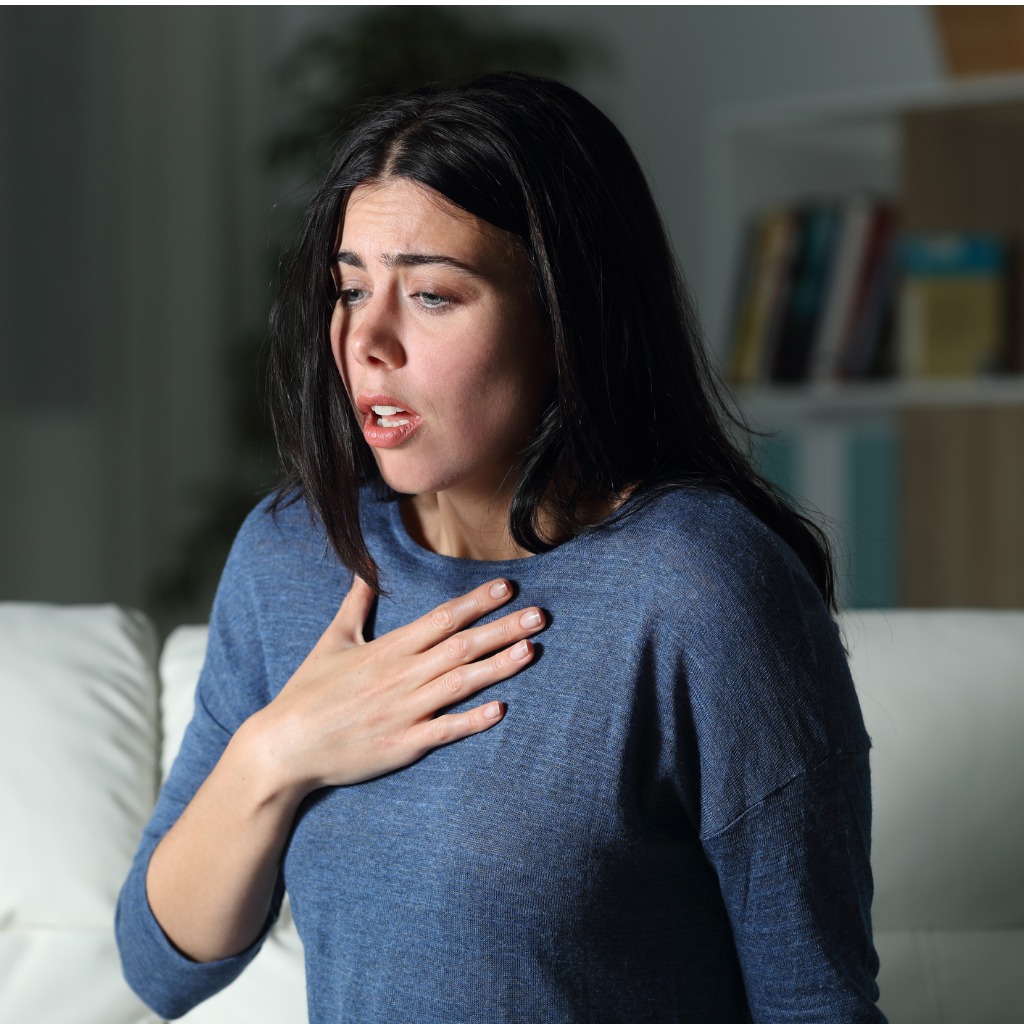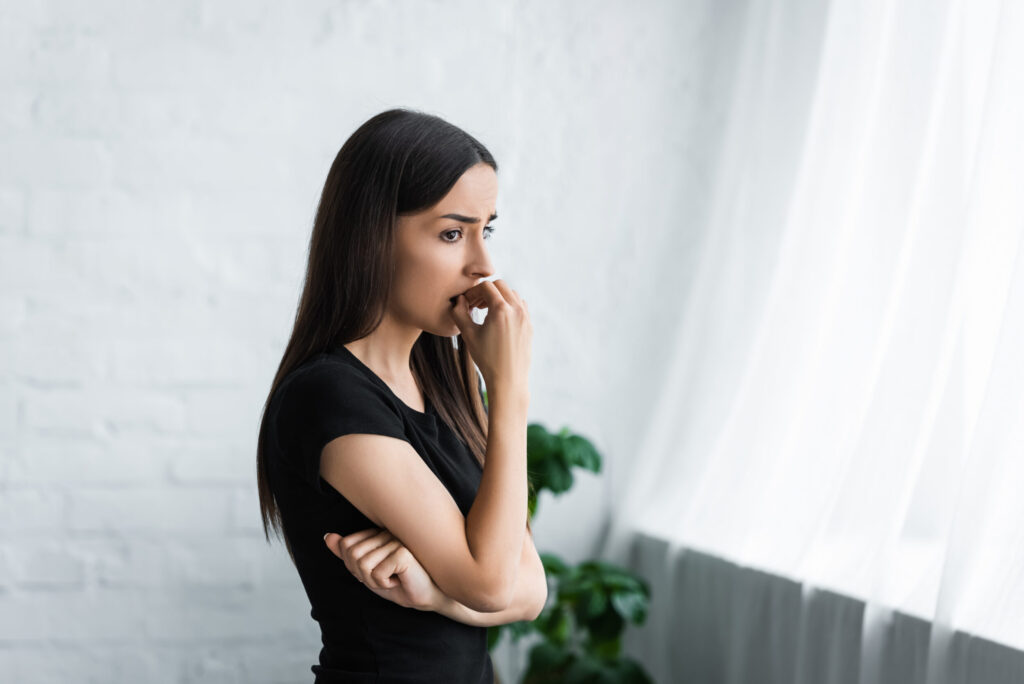by Veronica Vaiti, LCSW-R
Anxiety can manifest in many ways across the physical, emotional and cognitive spectrum. Some physical symptoms of anxiety include: tense muscles, nausea, irregular body temperature, dry mouth, jitters or tingling sensations, disturbed sleep, heart palpitations, headaches, belly aches/cramps or the “pit” in your belly, clammy hands and dizziness. Cognitive symptoms may include: intrusive thoughts, repetitive thoughts, uncontrollable or obsessive negative thoughts, exacerbated or tangential fearful or worrisome thinking. And emotional symptoms include experiences or fear, panic, agitation, irritation, feeling sad, easily excitable and nervous, or on edge.
As uncomfortable as it can be, and yes, sometimes crippling and paralyzing, anxiety in and of itself is not a “bad” thing. In fact, feelings of anxiety arise on many occasions as useful warning signs that need to be explored and understood rather than dismissed or rid of. In fact, historically, anxiety has an important evolutionary function – it once served as a physiological “radar screen” which was programmed to identify certain dangers. In ancient times when the human race relied on hunting and gathering as its mode of survival, this radar apparatus would help our predecessors avoid potential predators.
However, in modern times where our main feared predators are not strictly of the animal variety, man has struggled with adapting and taming this radar screen to fit the modern way of life, resulting in alarm systems which might ring “danger” and spin out control when no apparent visible or tangible danger is present.
Most people experience symptoms of anxiety from one degree to another at some point in their lives. Simply put, to face anxiety on some level is a natural part of a human life.
The hallmark of when anxiety borders on becoming a disorder is when the worry is excessive and exaggerated and more than one would expect from a given situation. This excessive worry can be debilitating resulting in difficulty adapting to ones daily responsibilities. Here is a hypothetical example to illustrate the difference between typical, manageable forms of anxiety and anxiety that may lend itself to a disorder that may need more comprehensive treatment. If one were preparing to take a big test, it would not be unusual for this person to experience pangs of nervousness before the test such as flutters in their belly, fleeting fears that they may not pass the test or acute, disrupted sleep the night before the test. However, if this same individual was to find that they are unable to sleep for a string of nights leading up to the test or obsessing that they may not pass the test and catastrophizing on the possibility of failure (i.e., if I fail this test, I can’t get into the school of my choice, I’ll disappoint my parents and then I won’t get the best job or be able to pay my bills, and etc.) then that person may be struggling with an anxiety disorder.
The most common types of anxiety disorders are generalized anxiety disorder, obsessive-compulsive disorder, social anxiety, panic disorder, acute stress disorder, post traumatic stress disorder, agoraphobia and anxiety disorder due to a general medical condition.
It is also quite possible to have symptoms that reflect some of the criteria used to diagnose these disorders per the DSM-IV, but not have the full-blown disorder. Regardless, treating your anxiety will have a better outcome in the long run than not treating it, or avoiding it or attempting ill-advised and miss-informed attempts to manage with your anxiety it (i.e., stay busy, constantly active and borrow medication from a friend).
Treatment for anxiety can include some combination of or all of the following: psychodynamic insight-oriented therapy to understand the root causes of your anxiety, cognitive behavioral therapy and relaxation and meditation practices to help with the daily management of the symptoms, and psychopharmacological (medication) treatment to address the neurobiological factors of your anxiety.
In order to determine what the most effective course of treatment for helping you manage with and heal from your personal struggles with anxiety, contact one of our therapists today, we are here for you.



